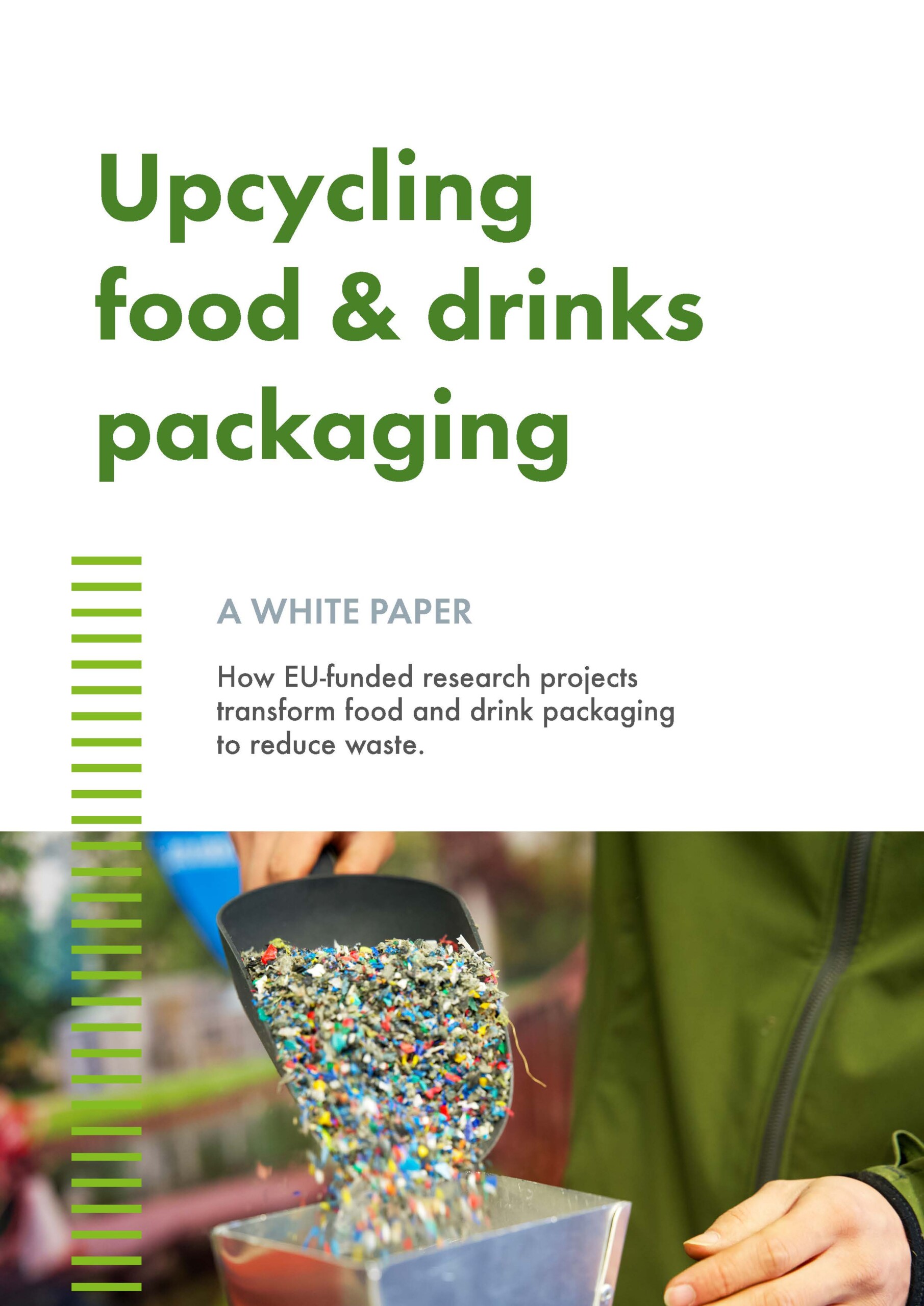In 2021, EU consumers spent €1,551 billion on food and drink, underscoring the sector’s economic significance. The food and drink industry, with a turnover of €1,112 billion in 2023, leads EU manufacturing and global exports. However, its reliance on plastic packaging has led to significant environmental challenges. The average European produced around 189 kg of packaging waste in 2021 – a little more than half a kilo per day per citizen – amounting to almost 85 million tonnes in the EU, with plastics constituting 19%.1 Despite progress, the sector faces substantial hurdles in achieving EU sustainability targets.
This white paper by the PRESERVE, UPLIFT, upPE-T, BioSupPack, and MoeBIOS projects, funded by Horizon 2020, Horizon Europe, and their European partnerships – the Bio-based Industries Joint Undertaking (BBI-JU) and the Circular Bio-based Europe Joint Undertaking (CBE JU) – focuses on advancing sustainable packaging solutions. These projects aim to upcycle various food and drink packaging materials into new, improved ones by 2030.
This white paper not only highlights the innovative technologies and materials developed by these four projects in circularity design, upcycling technologies and end-of-life options but also provides targeted recommendations for EU policymakers and key stakeholders for the future. These include investing in specialised collection, sorting and recycling infrastructure, promoting clear labelling and standards, and harmonising regulatory frameworks. It also emphasises the need for enhanced public education and public awareness campaigns on sustainable packaging. Overall, achieving these goals requires a collaborative effort among researchers, industry leaders, policymakers, and the public to drive innovation and foster a resilient, sustainable packaging sector.
